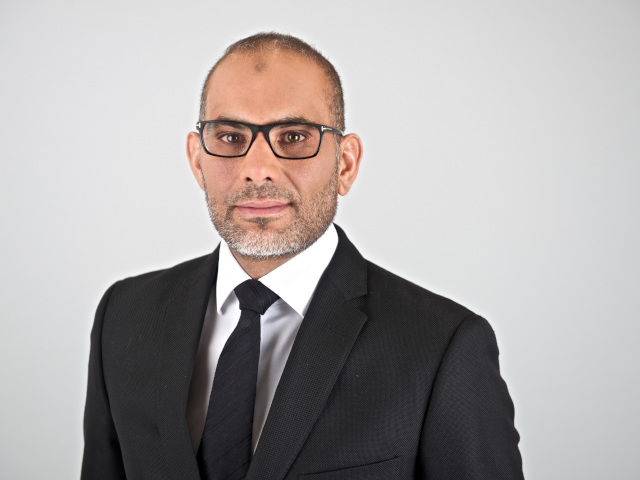By Sherry Zameer, Senior Vice President, Internet of Things Solutions for CISMEA region at Gemalto
Around the world, the provision of quality healthcare faces numerous challenges, including high costs and the difficulty for all people to access the care they need. The situation is no different in South Africa, although there are factors unique to the healthcare industry in this country, such as a large rural population, ageing healthcare infrastructure and the sheer weight of numbers of patients seeking or requiring treatment. However, these challenges can be overcome, and improved care delivered with the further introduction of information technology-driven innovations. The age of e-health has much to offer not only the healthcare industry, but the individual citizen who could benefit from more and better care, when and where required.
With chronic conditions like obesity and diabetes and heart disease on the rise in South Africa, improved ways of combatting and controlling non-communicable diseases (NCDs) are essential. By the same token, communicable diseases like HIV/AIDS and tuberculosis are an ongoing problem. While the R205.4bn allocated in the 2018/19 budget is a colossal sum, and the third biggest item of state expenditure, the money must stretch far. The challenge is summed up by non-profit organisation Section 27, which notes that ‘South Africa’s health care system remains under significant strain: “The quadruple burden of disease…continues amid human resources constraints, limited budgets, infrastructural challenges, essential medicine stock outs, and poor facility, district and provincial management.”
When it comes to preventative care, the technology doesn’t have to be on a grand scale. In fact, it starts on a personal level with, for example, the artificial intelligence increasingly built into our personal digital assistants, smart watches or fitness trackers. These devices help monitor wellbeing, counting steps, indicating heart rate and monitoring sleep quality. The feedback they provide can (and do) engage users, encouraging them to do better and live better, in this way becoming instrumental to preventative healthcare.
These miniature data acquisition systems use sensors to detect personal characteristics, analysing and presenting information in a useful way. Not only do they encourage individuals to initiate healthier lifestyles, they also provide medical professionals with data necessary to identify certain lifestyle disorders such as vitamin deficiencies, obesity, polycystic ovary syndrome and cardio vascular health.
One of ways in which e-health can boost preventative healthcare is the concept of integration. The healthcare industry relies on an endless variety of medical devices to assess patient wellbeing, from weight scales and thermometers to blood pressure devices, oxygen monitors, glucometers and heart rate monitors. Generally, these devices work as individual units, measuring different aspects of patient health and equipping healthcare providers with data to get a complete picture of overall health. Modern healthcare IT systems have improved and simplified this task by aggregating, visualising and managing patient data on web-based medical platforms.
When this building block of e-health is achieved, it has multiple benefits. From the patient’s point of view, their medical record is a single series of sequential care events, regardless of where these events were performed.
Of course, these medical records are highly confidential and need the highest levels of security. Just in other industry verticals, a trusted digital identity needs to be established for patients in the health care system. A trusted digital identity is created when patient is linked to his or her digital identity, which might be verified identity documents or biometrics. Gemalto’s eHealthcare solution provides a one-stop services platform to digitalise patient enrolment and management. It provides a convenient way to capture, verify and authenticate patient details and biometrics and streamline the processing of medical claims. It will also prevent fraud.
Another promising technology which can support e-health is the Internet of Things, which can enhance Blockchain record-keeping by leveraging mobile technology and enabling devices to automatically send real-time data to back-end IT systems via wireless networks. This technology, known as mHealth, is transforming the medical industry, enabling new services, improving patient care, and reducing time and cost inefficiencies.
But what does mHealth do for patients and medical practitioners? Just as smartphones and tablets have changed consumer lifestyles, mHealth promises to improve patient care, shorten hospital stays and promote healthier lifestyles. It does this through the power of information—and making that information available to those who need it, when they need it.
It’s a further technological development which adds to, for example, widespread cellular coverage and developments in healthcare technology which have made it possible to assist patients who require round the clock care, such as Alzheimer’s, autism and other special needs patients. It is now possible to monitor vital parameters remotely, allowing for faster reaction time and easy hands-free calling when help is needed.
Remote disease management solutions have particular applicability to South Africa’s healthcare challenges. This technology will help the control of chronic, common conditions such as high blood pressure, diabetes and obesity by enabling continuous two-way communications with healthcare providers. This effectively overcomes the “tyranny of distance” and the costs incurred by low-income patients travelling from rural areas to (already overburdened) clinics.
Technology can thus do more than drive efficiency; it can also help address these are challenges and achieve that most crucial of objectives: improved patient outcomes. And if technology can boost preventative healthcare, then it is truly achieving the very best of outcomes.





